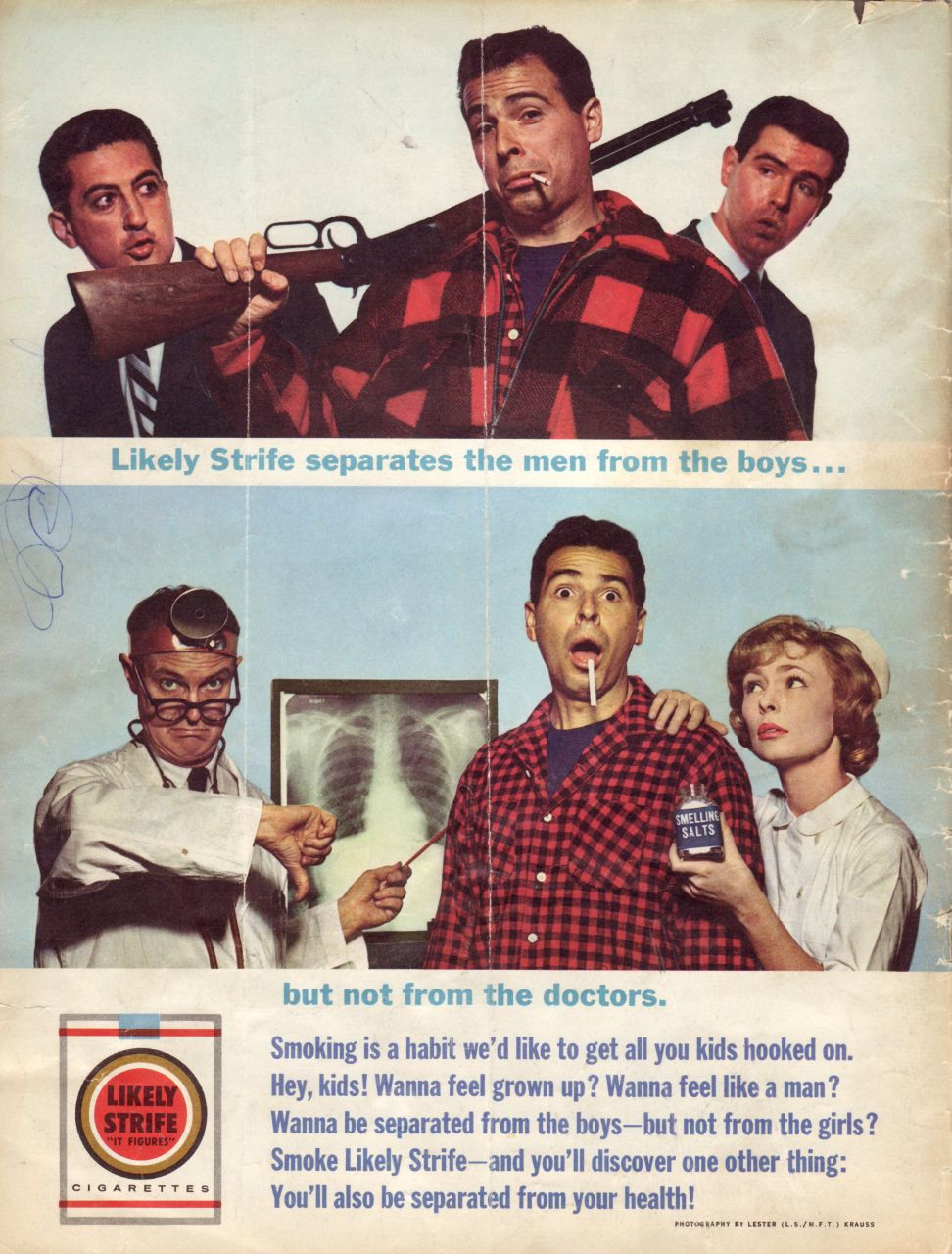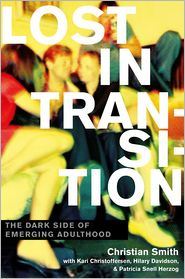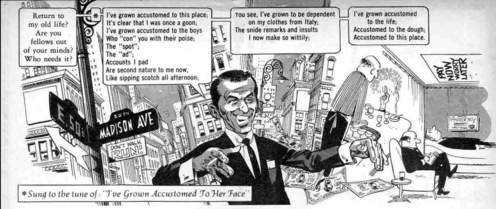I watched too much TV in my youth. I know that now, because I have a frightening number of commercials from the 1970s branded into my head. And they won’t go away. A very small sample from this corner of my brain:
“When it’s time to relax…(when it’s time to relax), one thing stands clear…(beer after beer)…Mil-ler tastes too good to hurry through…”
Parrot squawks: “Ring around the collar!” Voiceover: “Those dirty rings. You try scrubbing them out. You try soaking them out. And you still get…” Parrot, again: “Ring around the collar!”
“It’s the Pepsi generation! Comin’ at ya.’ Goin’ strong. Put yourself behind a Pepsi. You’ll be living. You’ll belooooooong.”
Yes, when I’m 97 I’ll be able to sing the lyrics to a Mustang II commercial from 1974 but I won’t be able to remember the names of my daughters. The fact that these ads are indelibly lodged in my brain is just one indication of how consumerism seeps into our souls.
 But in my misspent, spent and well spent youth, I did have a resource that helped counteract the mind-numbing effects of consumerism: Mad magazine.
But in my misspent, spent and well spent youth, I did have a resource that helped counteract the mind-numbing effects of consumerism: Mad magazine.
For most of 6th, 7th and 8th grade I had a paper route that provided me with extra cash. I chose to spend a certain proportion of that money on a Mad magazine subscription. I also read every Mad book from the 1950s and 60s that I could get my hands on.
Little did I know that this would help my Christian faith.
One may not think of Mad as an encouragement to holiness. But God works in mysterious ways. I read Mad because I thought it was funny. But unbeknownst to me, it slowly sharpened my sense of satire. Mad was the only place that I encountered a satire of consumerism and advertising.
 Satire can be a useful thing, because it helps to point out the absurdity in things that we would not notice otherwise. Mad developed in me a sense that there were certain aspects of American culture that ensnared us in ways we did not recognize — the lure of status symbols, the sweet deception that materialism will deliver a fulfilling life, the incessant banality of ads heard over and over, the subtle but powerful manipulations embedded in advertising – these are things that are really difficult to recognize.
Satire can be a useful thing, because it helps to point out the absurdity in things that we would not notice otherwise. Mad developed in me a sense that there were certain aspects of American culture that ensnared us in ways we did not recognize — the lure of status symbols, the sweet deception that materialism will deliver a fulfilling life, the incessant banality of ads heard over and over, the subtle but powerful manipulations embedded in advertising – these are things that are really difficult to recognize.
Mad made me laugh at them. My younger brother and I then made our own jokes about these cultural forms: who was Rula Lenska, anyway, and why should we think we should buy VO5, just because she said so?
I should point out that Mad magazine did not, by itself, strengthen my Christian maturity in this area. Several other factors in my life played key roles, including an education at a Christian college and six years of living in a culture (Kenya) that had not yet been inundated with wall-to-wall consumerism. And Mad also probably stoked my sins of cynicism and self-righteousness. But I give it credit for giving me a lens that enabled me to see things in American culture that I might have been blind to, otherwise.
To put it in biblical terms, I’ll pull out Romans 12:2: “Do not be conformed to this world, but be transformed by the renewal of your mind, that by testing you may discern what is the will of God, what is good and acceptable and perfect.” Christians are not supposed to be conformed to this world. Among other things, I take this to mean that completely conforming to consumerism can be harmful to our souls, our minds and our society.
 This is a problem we all face. Consider what emerging adults (ages 18 to 24) think about consumerism. A study by Christian Smith finds that 61% of emergent adults are very content with consumerism and see no real problems with it. Another 30% have some concerns, but believe that there is really nothing anybody can do about it. That means that 91% are essentially conforming to this part of the world. They do not see any reason why they should not unthinkingly embrace consumerism, or do not have any sense that there is anything that can be done about it. Most emergent adults believe consumerism just makes them happy and that they’d be happier if they could afford more things. Of course, those of us who are older cannot lay the blame for this on emergent adults, for they are reflecting the culture they live in. This is us.
This is a problem we all face. Consider what emerging adults (ages 18 to 24) think about consumerism. A study by Christian Smith finds that 61% of emergent adults are very content with consumerism and see no real problems with it. Another 30% have some concerns, but believe that there is really nothing anybody can do about it. That means that 91% are essentially conforming to this part of the world. They do not see any reason why they should not unthinkingly embrace consumerism, or do not have any sense that there is anything that can be done about it. Most emergent adults believe consumerism just makes them happy and that they’d be happier if they could afford more things. Of course, those of us who are older cannot lay the blame for this on emergent adults, for they are reflecting the culture they live in. This is us.
Some telling quotes from the study:
“If you want it, buy it. There’s certain things that are just, I think, unnecessary. But, you know, if you think it’s necessary in your life and you can afford it, more power to you.”
“I think everyone has what they like…If you have a thousand shoes, that is all you. If you want a thousand shoes, cool, that is all what you want…I don’t want to judge someone else and say you can’t or shouldn’t have that.”
“I guess I don’t really think about consumerism as far as its effects on society.”
I’m telling you, kids these days should be reading Mad magazine.

